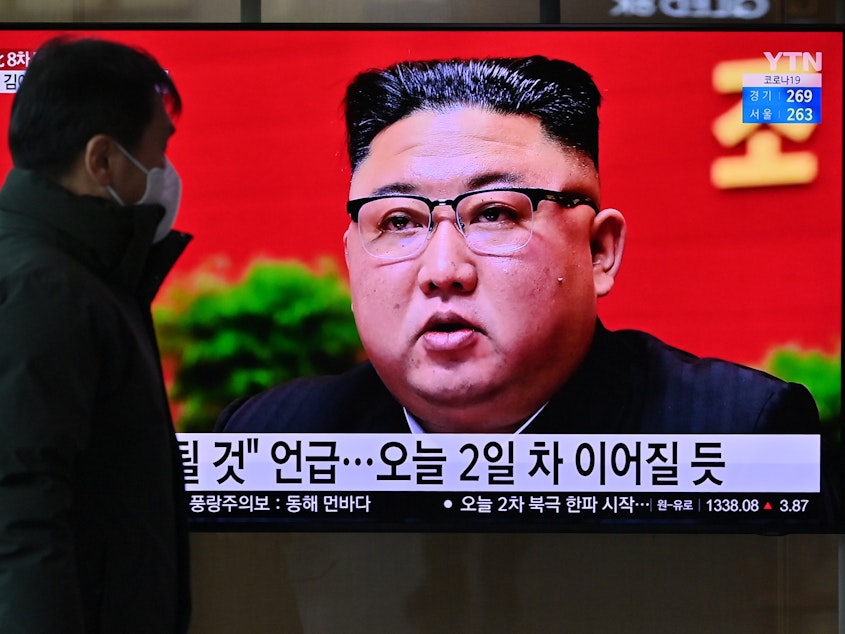In Rare Display Of Contrition, North Korean Leader Admits Failures

Mistakes were made.
That's according to North Korean leader Kim Jong Un, who in an address to a ruling party meeting made a frank admission — that the country's policies in the past five years had ended in abject failure.
"Almost all sectors fell a long way short of the set objectives," Kim told thousands of delegates to the Workers' Party's 8th Congress who were seated in a huge auditorium in Pyongyang.
The country should digest the "bitter lessons" of failure, Kim added, and "be bold enough to recognize the mistakes, which, if left unaddressed, will grow into bigger obstacles."
The congress is the first since 2016 and should produce a new economic blueprint for the next five years by the time it wraps up in the next few days.
Sponsored
Many veteran North Korea watchers believe the country is facing its worst economic crisis since the mid-1990s, when the loss of support from the defunct Soviet Union, compounded by Pyongyang's own mismanagement, led to a famine that killed, by some estimates, more than a million people.
Kim had admitted last August to "shortcomings," which led to a failure to meet the country's development goals and improve people's living standards. In November, he criticized economic officials for their mishandling of the economy.
International sanctions and back-to-back natural disasters over the past year have taken a toll on the economy. Anti-coronavirus measures have also weighed heavily, although no one in attendance at the party congress wore a mask. Officially, the government claims not to have a single case of COVID-19.
In his speech, Kim offered few new prescriptions for resolving the crisis, except to continue "consolidating our own strength." Nor did he offer any hints of how he plans to deal with the incoming U.S. administration of President-elect Joe Biden, or respond to South Korean President Moon Jae-in's attempts at engagement.
Biden has signaled that he intends to shore up the U.S. alliance with Seoul and avoid the high-stakes summitry with Kim preferred by Trump. For that reason, says Park Hyeong-jung, a veteran Pyongyang watcher at the Korea Institute for National Unification, a government think tank in Seoul, Kim is likely to look elsewhere for support.
Sponsored
"North Korea would think that however bad its economy gets, they will eventually be able to receive help from China," Park notes, adding that Pyongyang may seek to leverage souring ties between Beijing and Washington to its own advantage.
For now, though, the China-North Korea border remains shut to keep out the coronavirus, and the lack of cross-border trade has reportedly caused food prices to spike in North Korea.
In most of the years since he assumed power following his father's death in 2011, Kim has laid out his priorities in a televised New Year's speech, closely parsed by observers. But he has not delivered such a speech for two years in a row.
This may have been to avoid duplicating speeches at major party meetings close to the new year, but it also gives some observers the sense that things are not going well, and Kim has few accomplishments to trumpet.
Kim this year marked the new year with a brief, handwritten note to the North Korean people thanking them for their support in difficult times. [Copyright 2021 NPR]
